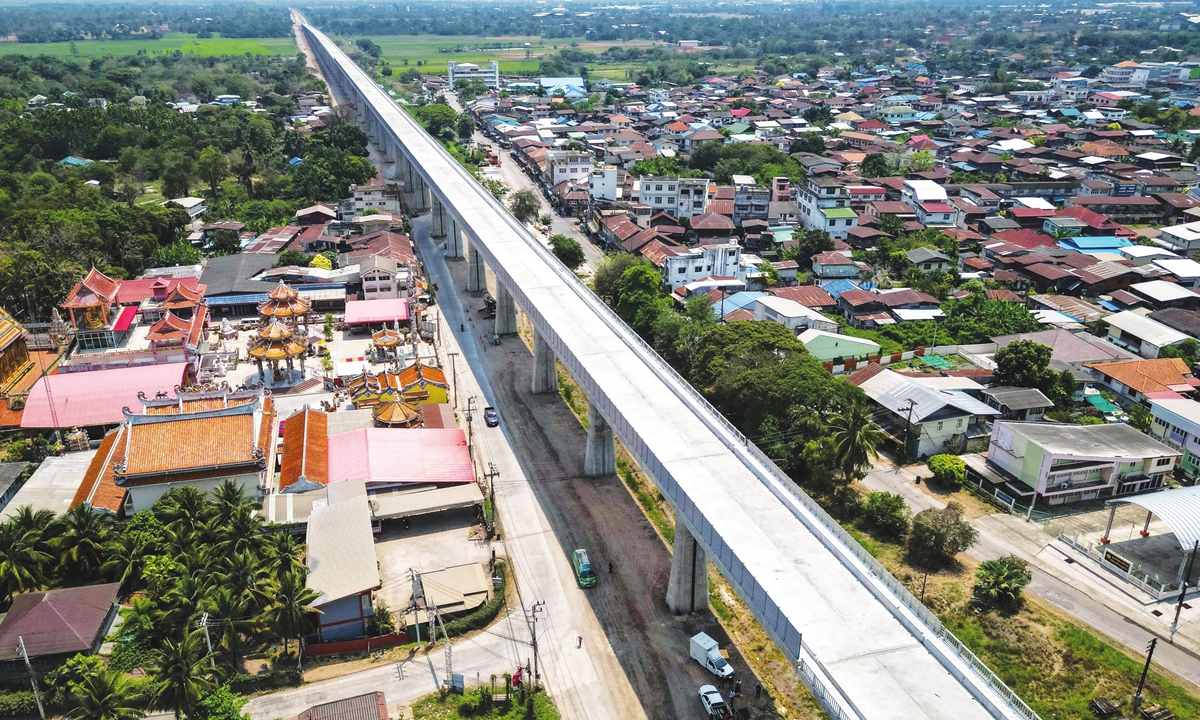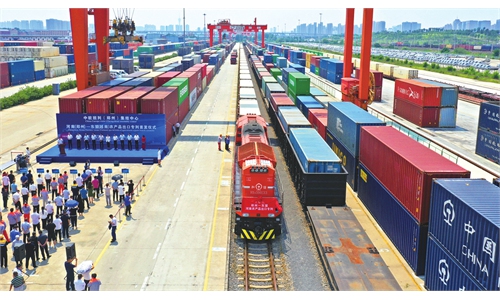
File photo: VCG
Thailand plans to hold an international competitive bidding process for a 1 trillion baht ($29 billion) mega infrastructure project called Land Bridge, which will connect planned deep-sea ports on the Gulf of Thailand and the Andaman Sea, allowing the marine transport of goods to pass through the country by land, Bloomberg reported on Monday.This is clearly an ambitious infrastructure plan that observers said could have a huge impact on international shipping and Southeast Asian economies. According to information provided by Thailand, the project could significantly cut shipping times between the Indian and Pacific oceans by bypassing the Malacca Strait.
The rewards for participating in the project will be substantial. Thailand's Transport Minister Suriya Juangroongruangkit told Japanese investors in Tokyo on Monday that a 50-year concession will be granted to the winning consortium.
According to foreign media reports, bidding will be held in the second quarter of 2025.
With the world's major commercial shipping routes experiencing accidents and crises that have sent shockwaves through global trade, it is natural that the mega infrastructure project Thailand is pitching to global investors is getting widespread attention.
While the economic feasibility of the project is still under assessment by investors, the complex geopolitics surrounding it may be the real test.
For instance, since China is an active investor in infrastructure projects in Southeast Asia, there are already claims that China could be a major beneficiary of the Land Bridge project, and that will require Bangkok to balance its relations with China and the West more carefully.
With so many uncertainties already surrounding the project itself, it's unnecessary to complicate things further by involving the China factor so early.
To name just one: The Land Bridge project is said to save several days at sea by bypassing the Malacca Strait, but the transition from the ocean to the land and back to the ocean could also take time and money, so the cost may even be higher than using the Malacca Strait alone.
For another: the Thai government wants to promote the project, which is estimated to help create 280,000 jobs and propel Thailand's GDP growth rate to 5.5 percent. But domestic opposition can't be overlooked, as environmental assessments and damage to existing agriculture businesses could be obstacles to construction.
Even if such questions can be properly resolved, the biggest uncertainty is that such a large infrastructure project will inevitably trigger new geopolitical problems and considerations. Fears of a new geopolitical game aren't unfounded - if they were, there wouldn't be the unnecessary speculation about China's role in the project.
Moreover, if the Land Bridge goes ahead and Thailand really emerges as a new shipping hub, it could remake current shipping patterns, with Singapore and Malaysia bearing the brunt of the change. That could bring new issues into the already complex and delicate economic and political situation in the region.
This is something Thailand and global investors must take into account, and that's also why various parties including China appear to be cautious about the project.
It is understandable for countries to have both political and economic concerns about a new transport route, especially at a time when the world's major shipping lanes, including the Suez and Panama Canals, are at risk of disruption from climate change and geopolitical perils.
Since the Malacca Strait is getting increasingly congested and could soon reach its maximum capacity, it is not a bad thing to start planning an alternative route now. Such preparations could be conducive to the development of the regional economy and trade.
But the premise for going ahead with such a large project is that it can only be built with the full cooperation of all parties in the region. This may be one of the most important foundations for the development of Southeast Asian economies.



